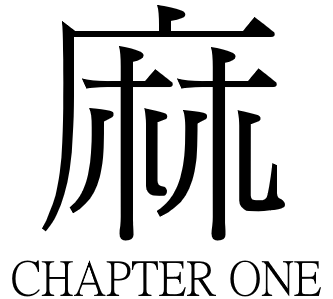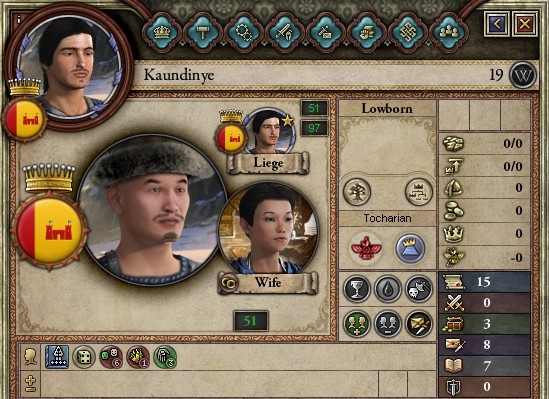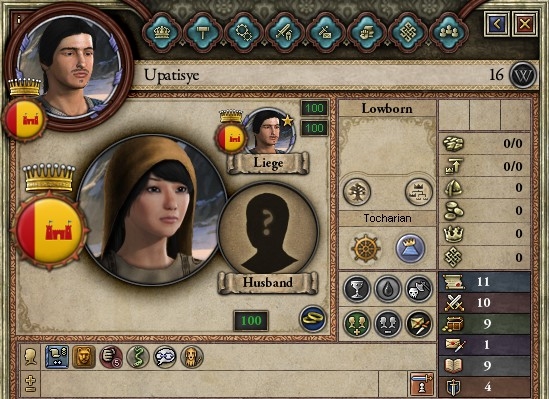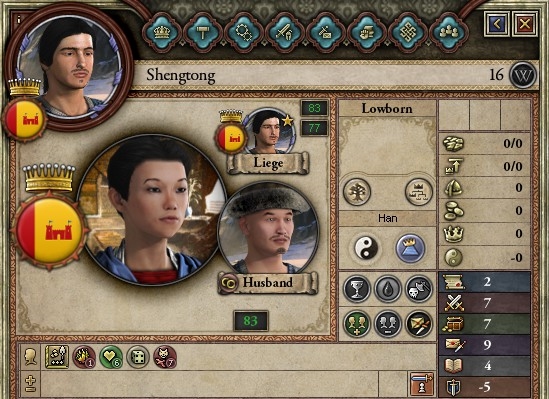Introduction / Table of Contents
Should one ask what the year is, one should hear various answers. A merchant from the Tang Empire would say that it is the Year of the Earth Monkey, 3645. A Tibetan might propound that the aforementioned Earth Monkey be specifically Male, and that the year be 514. A monk from the monastery will tell you that it has been one-thousand-three-hundred-thirteen years since the Shakyamuni Buddha was enlightened, and a Manichaean will tell you that it has been 553 years since the birth of Mani, and 2,269 years since the birth of Zarathustra. Perhaps the most easily recognisable to you, reader, would be if you asked a literate Christian man — for he would tell you that the year is 769 Anno Domini.
Our world is a world in a state of constant flux. The rebellion of the Sogdian-Tang General An Lushan has recently come to an end, leaving the Heavenly Kingdom in a weakened state, but not unready to re-exert its influence on the Western States. To the north, the Uyghur Khaganate rules the endless Siberian steppes to the north of the Celestial Mountains. The great Uyghur clans number five, and four further great hordes owe their allegience to the Khagan — the Mongol Ötüken, the Kyrgyz, the Kimak, and the Karluks. They are no friends of the Tang Empire, and seek to take advantage of its weakened state.
To the south, the great king Trisong Detsen has managed to reverse the century-long decline of the Tibetan empire. Following in the footsteps of the previous Dharma King, Songtsen Gampo, Trisong Detsen is a driving force in the conversion of his Kingdom to the teachings of the Shakyamuni Buddha, though it is a slow process as the peoples of Tibet still consider it to be a foreign and unusual religion. Brief military interventions and excursions against the Tang Empire have brought great prestige to the Tibetans in recent memory, as well as a great deal of influence in the Tarim Basin.
Thus, I suppose, it comes to our story.
Here, nestled upon the glacial rivers and oases of the Tarim Basin, clinging to life on the fringes of the Taklamakan Desert, you will find us. We go by many names — Turpanian, Kroraini, Agnean, Kuchean — but we are all the same people across this land, save for the Saka who live in the southwest. Our petty kingdoms are many, but we are in essence one nation. The Chinese call us Yuezhi and the Uyghurs call us Twγry, but you might call us Tocharians.
Our cities are numerous, but they can be neatly arranged into seven polities, the three most important of which are:
Finally, I suppose I should introduce you to our subject: Buddhatala, the young prince of Ārśi himself.
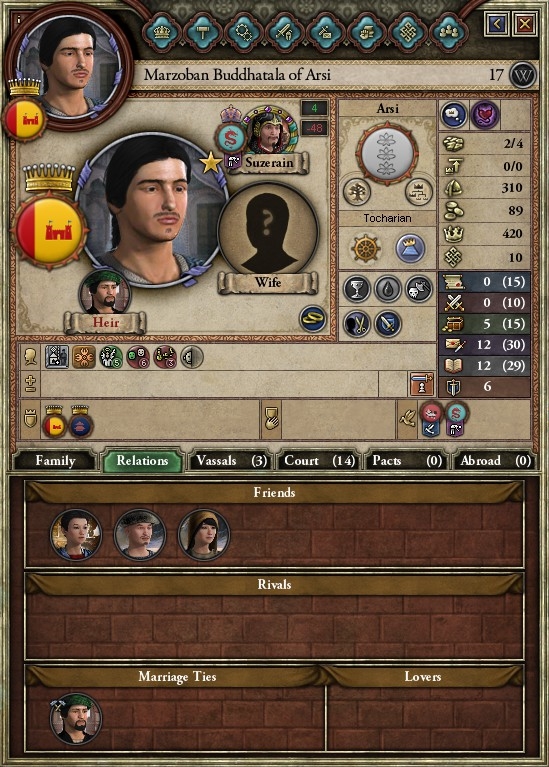
Seventeen years of age and as foolish as one would expect of such. A shy boy with a selfish streak, who was somewhat inattentive to his studies after the death of his father. Graceless. Martially talentless. His only redeeming qualities may well be his literate nature and his patient soul. A boy who would much rather drink Huangjiu wine with his few closest friends than attend the unceremonious day-to-day of the court. To further confound the situation, he is blessed and cursed with a more qualified elder sister, who may see fit to usurp him alongside her husband, who just happens to be the Chancellor.
What will fate have in store for our young subject? Only Heaven knows, and we are doomed to remain ignorant in its shadow.
Our world is a world in a state of constant flux. The rebellion of the Sogdian-Tang General An Lushan has recently come to an end, leaving the Heavenly Kingdom in a weakened state, but not unready to re-exert its influence on the Western States. To the north, the Uyghur Khaganate rules the endless Siberian steppes to the north of the Celestial Mountains. The great Uyghur clans number five, and four further great hordes owe their allegience to the Khagan — the Mongol Ötüken, the Kyrgyz, the Kimak, and the Karluks. They are no friends of the Tang Empire, and seek to take advantage of its weakened state.
To the south, the great king Trisong Detsen has managed to reverse the century-long decline of the Tibetan empire. Following in the footsteps of the previous Dharma King, Songtsen Gampo, Trisong Detsen is a driving force in the conversion of his Kingdom to the teachings of the Shakyamuni Buddha, though it is a slow process as the peoples of Tibet still consider it to be a foreign and unusual religion. Brief military interventions and excursions against the Tang Empire have brought great prestige to the Tibetans in recent memory, as well as a great deal of influence in the Tarim Basin.
Thus, I suppose, it comes to our story.
Here, nestled upon the glacial rivers and oases of the Tarim Basin, clinging to life on the fringes of the Taklamakan Desert, you will find us. We go by many names — Turpanian, Kroraini, Agnean, Kuchean — but we are all the same people across this land, save for the Saka who live in the southwest. Our petty kingdoms are many, but we are in essence one nation. The Chinese call us Yuezhi and the Uyghurs call us Twγry, but you might call us Tocharians.
Our cities are numerous, but they can be neatly arranged into seven polities, the three most important of which are:
- the Kingdom of Kroraina and its subordinate Principality of Narubho; Kroraina is the largest and most populous of the Tocharian polities, despite being ruled from one of the smallest of the major Tocharian cities on the northern edge of the Lop Nur. It is nevertheless an important city along the Tang Empire's trading network and is therefore gifted with prosperity. The Kroraini King, Siddharte, is descended from a line of Buddhist kings stretching back nearly a century and a half.
- the Principality of Ārśi, which is prettily nestled in the eastern extreme of the Celestial Mountains. Its cities straddle the course of the Kaidu and Kongque Rivers. Two of the most populous cities in the Tocharian realm, Agni and Korla, are located within its borders. The previous Prince, Cakuraya, was killed while serving loyally against An Lushan's rebellion in the last year of the fight, leaving his young son Buddhatala on its throne. Ruled by a shy and naïve boy of seventeen years as of now, its fate is uncertain.
- the Principality of Kuca, which lies along the southern Tian Shan road. Its capital, Kuca, is the most populous of all the Tocharian cities. Ruled by the just-tempered Dharmawarme, it is bordered by friendly states and protected by the impassible mountains to the north and the Taklamakan desert to the south. Protected from the raids of the roving Uyghurs and their vassals, Kuca is decidedly the economic and intellectual heart of the Tocharian world.
Finally, I suppose I should introduce you to our subject: Buddhatala, the young prince of Ārśi himself.

What will fate have in store for our young subject? Only Heaven knows, and we are doomed to remain ignorant in its shadow.
†‡†‡†‡†‡†‡†‡†‡†‡†‡†‡†‡†‡†‡†‡†
TABLE of CONTENTS
†‡†‡†‡†‡†‡†‡†‡†‡†‡†‡†‡†‡†‡†‡†
TABLE of CONTENTS
†‡†‡†‡†‡†‡†‡†‡†‡†‡†‡†‡†‡†‡†‡†
Last edited:



